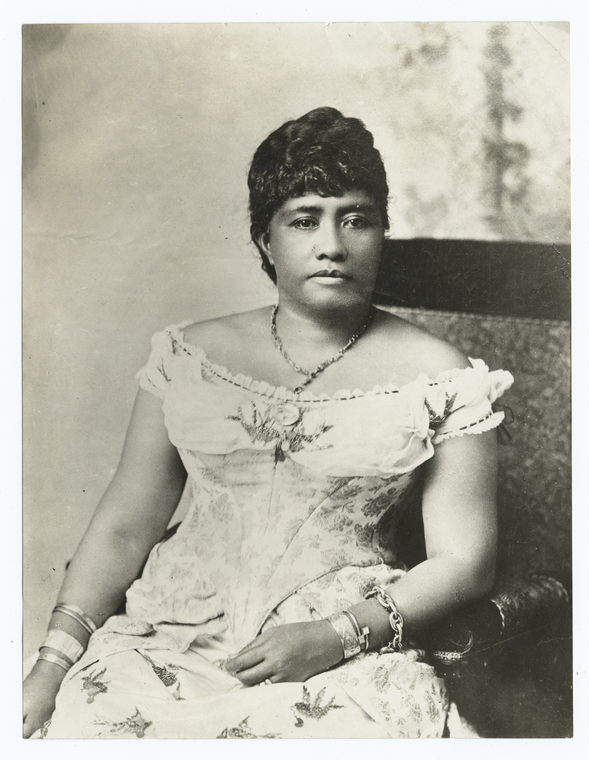
The source “The ‘Missionary Party’ Took the Law into Its Own Hands” is an excerpt from Queen Liliuokalani’s 1898 autobiography, titled Hawaii’s Story by Hawaii’s Queen. Liliuokalani was the last reigning monarch of the kingdom of Hawai’i, however, this section of her autobiography focuses on the reign of her brother, David Kalakaua. During his rule from 1874 to 1891, Kalakaua oversaw a treaty that allowed the United States to import Hawai’ian agricultural goods tax-free. However, in 1887, influential American plantation owners forced Kalakaua to sign a “Bayonet Constitution.” which took executive power away from the monarchy and gave it instead to the king’s cabinet. The constitution also disenfranchised most of Hawai’i’s native population, instead shifting power to the economically elite white population. The “missionary party” discussed in this document was named because many of its supporters were descents of missionary families from the United States or Europe.
In this document, Liliuokalani is writing about events that have already happened and about a member of her own family. This creates a clash of language throughout the work. On one hand, Liliuokalani is harsh and critical towards the members of the “missionary party.” This is because she already knows that Hawai’i will lose its independence as a result of the 1875 treaty. Conversely, Liliuokalani also uses more respectful language when talking about her brother, the former king. This is likely because he is both her brother and a member of the royal family. Paying attention to how Liliuokalani discusses the major players in these events reveals a lot about her relation to said players.
Beyond the significance of this source to the history of Hawai’ian and American relations, this document also reveals a lot about global imperialism and the role of missionary work in that historical phenomenon. Interestingly, the overthrowing of the Kingdom of Hawai’i happened from the inside out as the settling of missionary families on the islands created an American population who were born and raised in Hawai’i. This meant that the descendants of the missionaries had a history and connection (albeit weak-rooted) with the land. This seemingly humanitarian interest in Hawai’i quickly evolved into an economic interest in the fertility of the land and climate. The educated and rich status of the missionaries and their descendants allowed them to gain economic and political dominance in Hawai’i by subverting the indigenous way of life.
Sources
Liliuokalani. “The ‘Missionary Party’ Took the Law into Its Own Hands.” 1898. In American Empire at the Turn of the Twentieth Century, edited by Kristin Hoganson, 52-55. Boston: Bedford / St. Martin’s, 2017.
The Miriam and Ira D. Wallach Division of Art, Prints and Photographs: Photography Collection, The New York Public Library. “Liliuokalani, Queen of Hawaii, 1892-93.” New York Public Library Digital Collections. https://digitalcollections.nypl.org/items/005e9c50-c616-012f-24b0-58d385a7bc34